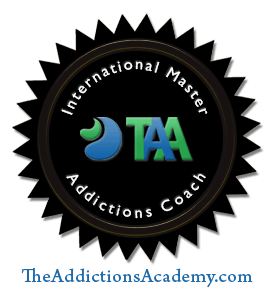What would a coach do?
How would a coach manage this situation?
I had a coaching client present the following scenario to me:
John (not his real name) mentioned at his last coaching session that he is going to an after-hours event for work. The event is being held at a local bar. John has a history of alcohol use disorder and has been sober and in recovery for 3 months. John is worried about going to the event and wants to discuss the situation and determine the best course of action.
This is a situation in which I am routinely asked for help. It’s an example of having to live in recovery in the “real world”. Living effectively in recovery every day and managing the challenges life presents is important for maintaining sobriety and healthy living.
Work events outside of work hours are common situations. Alcohol is frequently a part of the festivities. Sometimes it’s wine at dinner. Other times, it’s beer at a sporting event or a social gathering at a bar. People recovering from alcohol use disorder must learn to manage these situations.
Where do we start?
When John mentioned the situation, I initially wanted to know if he was required to attend the event. Since John was only sober for 3 months, I didn’t want him to attend. Unfortunately, John was required to be at the event. John has a managerial role in the company, and the event was scheduled to build relationships between management and the rest of the team members. We talked about whether the job was worth keeping and risking his sobriety. Sobriety and recovery must come first. What is the value in maintaining a job that will perpetuate the addiction cycle and likely lead to termination because of poor work performance secondary to effects from the addiction? John felt losing his job would jeopardize his sobriety more than going to this event. So, we started working on the plan for the event.
Where do we go from here?
We focused on being at the event. How long did John have to be there? Could he leave early, especially before people started drinking? Perhaps speeches were being given before people started ordering drinks? Could John just be there for that part and avoid alcohol exposure? John noted it was a social event without any formal program, and drinking would occur from the beginning. He noted he could probably just go for an hour and then excuse himself for family obligations. OK, now we had a timeframe with which to work. John had to be there for an hour, and the goal was to get through the hour unscathed.
What was the plan for John’s hour at the event?
The next step was to develop an effective management plan for the event. Were there any co-workers he knew wouldn’t be drinking whom he could spend the majority of his time talking to? Were there areas in the bar where he could position himself such that, if needed, he could easily excuse himself for a break from the alcohol exposure? We worked through those questions and came up with names of colleagues to socialize with for most of the hour. John was able to figure out how to position himself in the bar to reduce seeing alcohol as much as possible. He also would make it a point to know where the front door is in relation to his location in the bar and make a note of the restrooms upon arriving at the bar. John seemed confident with these plans.
Then we turned to coping mechanisms and sobriety tools. What should John do in case he is triggered? We talked about having a soda in his hand at all times and focusing on drinking it when triggers start, especially if in the middle of a conversation, and he couldn’t excuse himself. We talked about stepping out of the bar for a minute to recover, texting or calling a support team member while outside the bar, quickly journaling on his phone, and thought diversion through mantras. We also talked about hiring a sober companion for the event.
I asked John to list all the pitfalls that existed for this event. Some were obvious, such as being in a bar around people who are drinking. Others were less obvious, such as certain foods to avoid because he used to enjoy them while frequenting bars and drinking alcohol. We also talked about managing co-workers who may “enthusiastically” encourage John to have a drink. I encouraged him to hold firm and not to give in to the coercion. Just say no and walk away.
John felt reassured that he had a good game plan going into the event. He knew how to manage the atmosphere, the alcohol exposure, and how to manage triggers if they surfaced. He knew where to position himself in the bar to sneak away for a quick break from the atmosphere when needed. He knew what to do if triggered. He also knew he wasn’t alone in managing the event. John had a support system behind him. This was not going to be an easy experience to manage. However, John knew he had to manage the event for an hour, and then he could leave.
What are the key points about coaching from this story?
Coaches help clients work through situations and develop a plan that works best for their recovery and sobriety. This holds true for one-off events and for long-term relapse prevention. The goal is to create confidence in maintaining sobriety and living in recovery through support and skills to manage daily challenges. With a coach in your corner, you aren’t alone in navigating the bumpy road of sobriety and recovery.
Kenneth Markowitz, MD, IMAC, CHCQM
